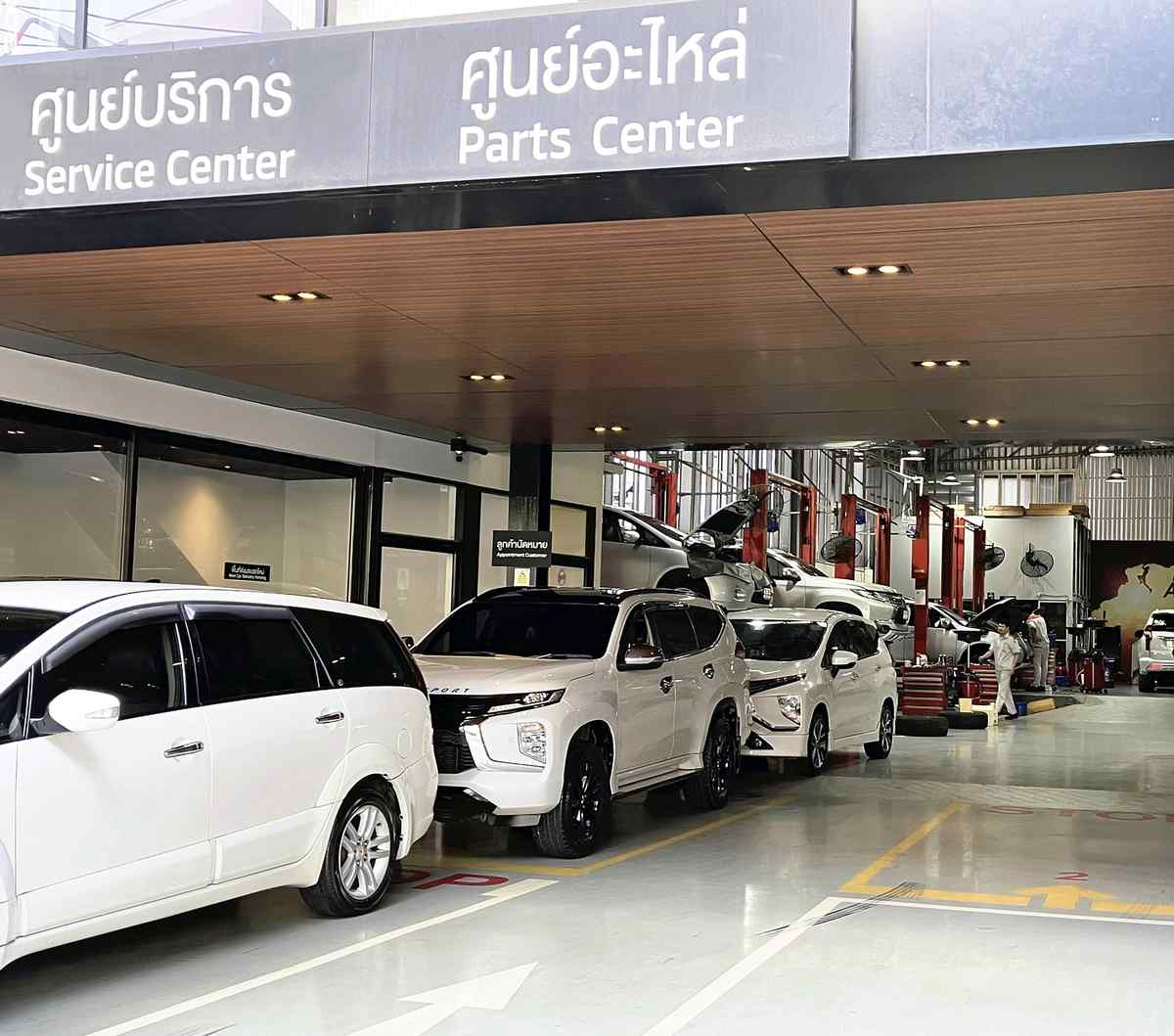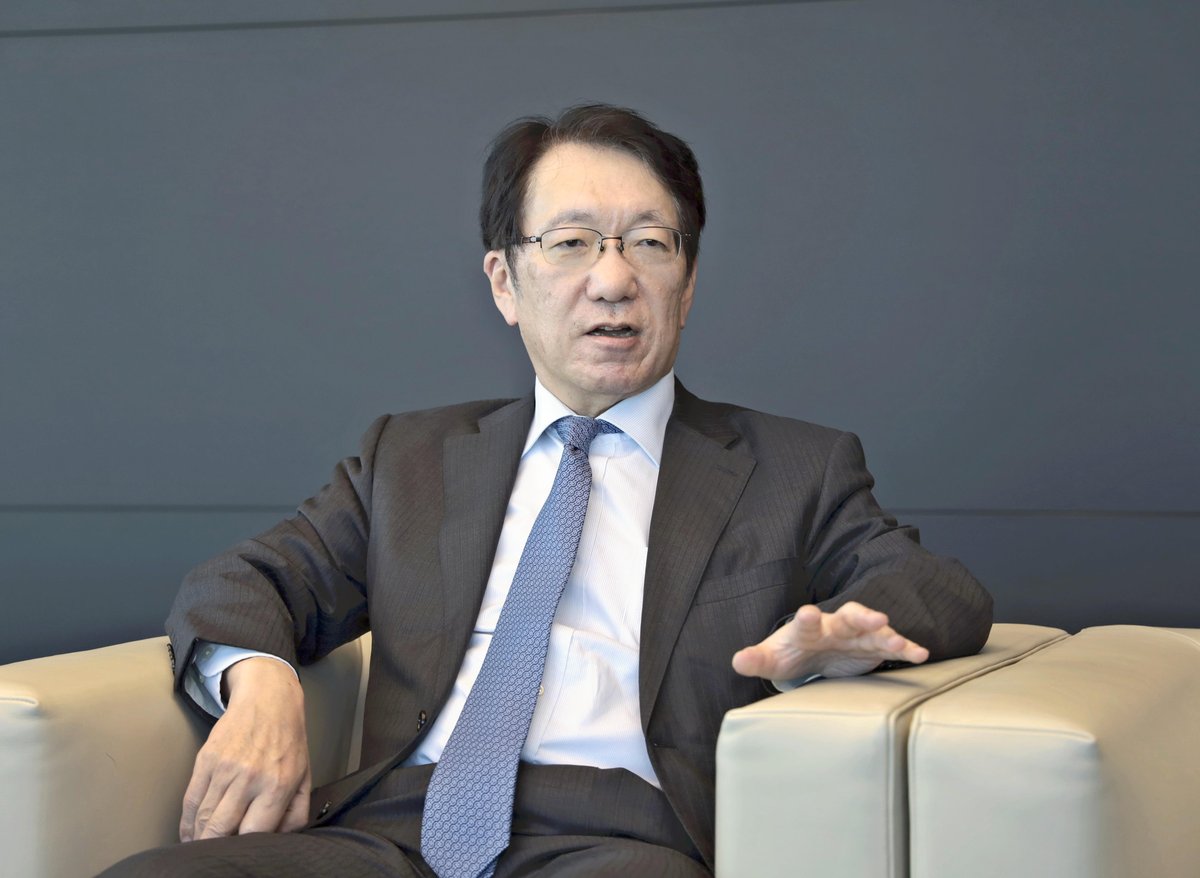Mitsubishi Motors Seen As Key to S.E. Asia in Honda, Nissan Talks; Japanese Makers Face Chinese Challenge In Region

A Mitsubishi Motors Corp. dealership with a service center for repairs is seen in Bangkok on Tuesday.
21:00 JST, December 25, 2024
Mitsubishi Motors Corp. is seen as the key to expanding the presence of Honda Motor Co. and Nissan Motor Co. in the Southeast Asian market as they discuss integrating their businesses and face the possibility of having to rethink their production and sales strategies in the region.
Mitsubishi Motors, which is considering joining the integration, has some brand power in Southeast Asia.
While Chinese automakers are rapidly increasing their influence, the key to capturing the growing market for Honda and Nissan will depend on whether or not Mitsubishi Motors joins forces with them.
90% market share
Mitsubishi Motors entered Southeast Asia in earnest in the 1960s, establishing a sales network in cooperation with Mitsubishi Corp., also a member of the Mitsubishi Group. The automaker has built a market for pickup trucks and other products tailored to local needs.
Mitsubishi Motors’ global sales in fiscal 2023 were 810,000 units, with about 30% of those sales within the Association of Southeast Asian Nations region.
In Indonesia, the largest market in Southeast Asia, Japanese automakers have a total market share of about 90%. Mitsubishi Motors’ share of new vehicle sales from January to November this year was 8%, ranking fourth behind Toyota Motor Corp., Daihatsu Motor Co. and Honda. In contrast, Nissan’s share is only 0.1%.
If Mitsubishi Motors joins the business integration and can combine its development capabilities and sales network with those of Honda, this may lead to an improvement in the competitiveness of its passenger cars. Honda has a nearly 80% share of the motorcycle market in Indonesia.
China’s offensive
In Southeast Asia, however, Chinese automakers are stepping up their offensive to challenge Japanese dominance of the car market. In Thailand, there are signs of some change.
New car sales in Thailand from January to October totaled about 470,000 units, with the nine Japanese automakers having a combined market share of 76%. However, that share has declined from the 90% share they once had.
China’s BYD Co. has already surpassed Mitsubishi Motors in market share in Thailand. In response to the Thai government’s intention to make the country a major production base for electric vehicles, Chinese carmakers are aggressively investing in Thailand.
Honda, Nissan and Mitsubishi Motors all have plants for finished vehicles in Thailand.
At the time of Nissan’s acquisition of a major stake in Mitsubishi Motors in 2016, there was a plan for Mitsubishi Motors to have full responsibility for Southeast Asian operations.
If the integration of the three companies is realized, the reorganization of production bases in Southeast Asia is seen as inevitable as the market share of Chinese companies gradually expands.
Honda President Toshihiro Mibe released a message to employees after a press conference held by the three companies on Monday.
“Electric vehicles from emerging companies, especially Chinese ones, are beginning to penetrate the market at a pace beyond our expectations. The threat is increasing day by day in Southeast Asia as well,” he said.
***
Mitsubishi Motors President: We Can Support Honda, Nissan in Vehicle Production

Mitsubishi Motors Corp. President Takao Kato gives an interview in Minato Ward, Tokyo, on Tuesday.
Mitsubishi Motors Corp. President Takao Kato, who is considering joining the business integration talks between Honda Motor Co. and Nissan Motor Co., said he believes Mitsubishi Motors can support Honda’s and Nissan’s vehicle production in Southeast Asia, during an interview with The Yomiuri Shimbun on Tuesday.
Noting that the main market for both Honda and Nissan is North America, Kato said: “We have heard from the two companies that they find [the situation of] Mitsubishi Motors’ vehicles in Southeast Asia attractive. If the two companies are not able to produce vehicles in Southeast Asia, there may be talk of us doing it.”
Mitsubishi Motors is experiencing a decline in operating ratios at its plant in Thailand, and he said that the automaker “may consider supplying vehicles from its own plant” to the two companies.
Regarding Chinese automakers accelerating their expansion into the market, he said, “We are seeing whether we can compete on an individual company basis, but next year will be an important year.”
Top Articles in Business
-

Prudential Life Insurance Plans to Fully Compensate for Damages Caused by Fraudulent Actions Without Waiting for Third-Party Committee Review
-

Narita Airport, Startup in Japan Demonstrate Machine to Compress Clothes for Tourists to Prevent People from Abandoning Suitcases
-

Japan, U.S. Name 3 Inaugural Investment Projects; Reached Agreement After Considerable Difficulty
-

Toyota Motor Group Firm to Sell Clean Energy Greenhouses for Strawberries
-

SoftBank Launches AI Service for Call Centers That Converts Harsh Customer Voices into Softer Voices
JN ACCESS RANKING
-

Japan PM Takaichi’s Cabinet Resigns en Masse
-

Japan Institute to Use Domestic Commercial Optical Lattice Clock to Set Japan Standard Time
-

Israeli Ambassador to Japan Speaks about Japan’s Role in the Reconstruction of Gaza
-

Man Infected with Measles Reportedly Dined at Restaurant in Tokyo Station
-

Videos Plagiarized, Reposted with False Subtitles Claiming ‘Ryukyu Belongs to China’; Anti-China False Information Also Posted in Japan




















